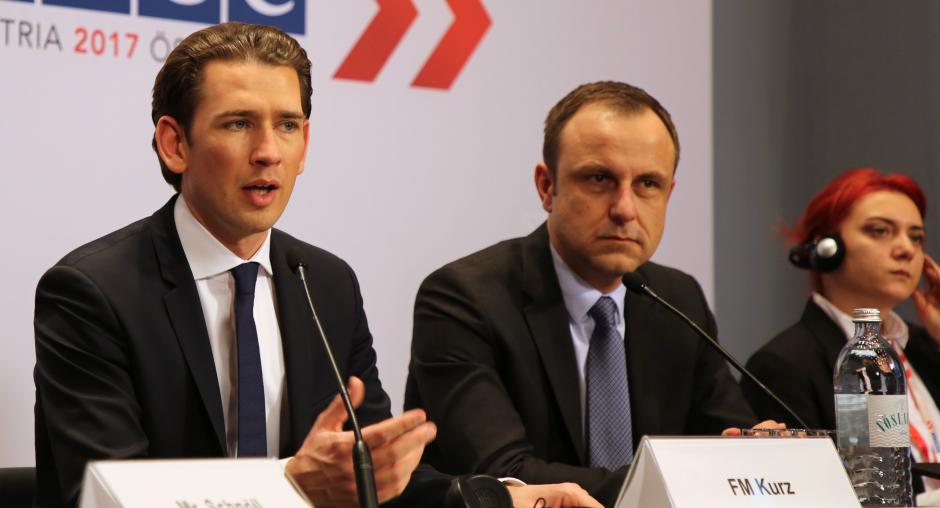States should make use of OSCE in countering violent extremism and radicalization that leads to terrorism, says OSCE Chairperson-in-Office Kurz

VIENNA, 7 December 2017 – It is in the interest of all participating States to use the OSCE as a security forum to counter violent extremism and radicalization that lead to terrorism and to strengthen co-operation so that we can work together, said OSCE Chairperson-in-Office and Austria’s Foreign Minister Sebastian Kurz at a side event held on the margins of the 24th OSCE Ministerial Council in Vienna today.
“The danger that terrorist radicalization poses to our region is seen almost daily by increasingly brutal and arbitrary attacks on our societies,” said Kurz. “No state and no society is immune to violent radicalization and terrorism. We cannot stand alone against this threat, but can only succeed together in close co-ordination. This is why the Austrian Chairmanship of the OSCE deliberately put a focus on preventing and combating violent radicalization this year.”
He recalled that over the course of 2017 the Austrian Chairmanship had organized a series of workshops with young people on addressing this challenge, brought together more than 500 experts for a major Counter-Terrorism conference in May, and engaged foreign ministers from across the OSCE area on this issue.
He added that Austria will provide €250,000 next year to support the work of the OSCE in this area and in developing a handbook on countering violent radicalization.
“In my view, what is needed is a significant strengthening of the OSCE's Action Against Terrorism Unit - this is also one of the recommendations of Professor Peter Neumann's report,” said Kurz, referring to the report published by his Special Representative in September on the OSCE’s activities to prevent violent extremism and radicalization that lead to terrorism.
Neumann, who was also present at the side event, said: “It takes a network to defeat a network. The OSCE could be that sophisticated network that defeats the terrorists. The OSCE, with its experts, specialized institutions and field operations, has the expertise and the local contacts on the ground. There is a need to make efforts to combat terrorism more co-ordinated and more sustainable - the OSCE could support this.”
Two participants of the youth workshops on preventing violent extremism organized by the Austrian Chairmanship earlier this year also addressed the event.
“Do you see me? Do you care about me? These are questions people are consciously or unconsciously asking every day in their interactions with the State,” said Dina Iglikova, Resident Co-ordinator of the Kazakhstan-based Mampassi Collective, which works on projects to enhance links and networking in the Central Asian region. “To prevent violent radicalization we need to address the alienation of people from their own societies.”
Armina Mujanović, a Bosnia and Herzgovina-based political analyst, said: “I am looking forward to seeing new strategies that are focused on the protection of human rights.”
